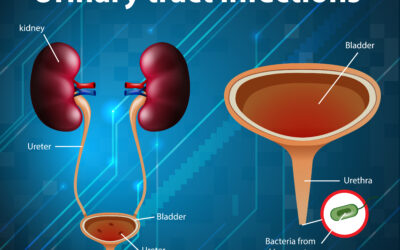Vertigo is often mistaken as an indication of tiredness, giddiness, or imbalance. Vertigo normally occurs because of certain inner ear problems. It is generally diagnosed by medical records and a physical examination.
There are two major types of vertigo –
• Peripheral vertigo: It is a condition where there is an inner ear problem that maintains body balance.
• Central vertigo: this condition is felt when there is a malfunction in one’s central nervous system, where the person sees external movement, spinning, and other such unpleasant scenarios.
What causes Vertigo?
Vertigo usually occurs because of certain inner ear problems. The inner ear is responsible for giving the brain messages about the motions of the head and body due to gravity as well as maintaining the balance.
Such common causes of problems with the inner ear include:
- Inflammation of the inner ear due to a viral or bacterial infection of the inner ear.
- Due to BPPV (benign paroxysmal positional vertigo) in which tiny calcium particles cluster up in inner ear canals.
- Meniere ‘s disease, which is also an inner ear disorder thought to be caused by fluid buildup and changing pressure in the inner ear.
- Vestibular neuritis or labyrinthitis, the infection that causes inflammation in the inner ear around the nerves that is vital to the body’s sense of balance.
- Specific medications that cause ear damage. Hence, Vertigo requires medical care to control it effectively.
Apart from the inner ear, other causes that are responsible for vertigo are:
- Complications from diabetes
- Migraine/ headaches
- Decreased blood flow to the base of the brain
- Head trauma and neck injury
- A problem in the brain like a stroke or tumor
- Multiple sclerosis
Symptoms of vertigo: Vertigo symptoms can last a couple of minutes or a few hours. Some of the symptoms a person might actually experience if he/she has vertigo include: Nausea, Difficulty in speaking, Reduced consciousness, Weakness, Visual disturbances, Loss of hearing and a ringing sensation in the ears, Abnormal or jerking eye movements, Trouble in walking and a sense of spinning, tilting, swaying, unbalanced or being pulled in one direction. Vertigo is usually treated by a medical history and a physical examination. Also likely tests such as CT scans, blood tests, magnetic resonance imaging (MRI) and electrocardiogram (ECG) are performed. Vertigo treatment always depends on the condition it is diagnosed with. If signs are detected, one should see a doctor and no self-medication or home therapy should ever be adopted.
Some risk factors noted to raise the risk of vertigo-associated disease (VAD) include:
• Cardiovascular diseases especially in elders
• Recent ear infection, notably if the inner ear is affected
• Head trauma records
• Specific medications like antidepressants and anti psychotics
Since the cause can differ, it takes careful analysis to decipher vertigo and its purpose, hence when it comes to vertigo, one must not self-medicate or opt for home remedies. Even counter medication is not recommended, because after symptoms have been detected, a proper diagnosis is a must by a professional doctor who will continue with the treatment accordingly. People prefer to ignore vertigo in general, and not take it seriously. This is mainly because there are many misconceptions and myths around vertigo.
Some of the myths which are not accurate about vertigo include:
• Vertigo is a fear of heights
• Vertigo is an issue with the brain
• Vertigo subsides on its own
• Vertigo means lightheartedness
Because of these misconceptions that exist, people generally either do not seek timely medical help or tend to treat vertigo on their own. However, allowing the doctor to examine your condition and better understand the type or cause of vertigo, and treat it properly, is essential.







0 Comments